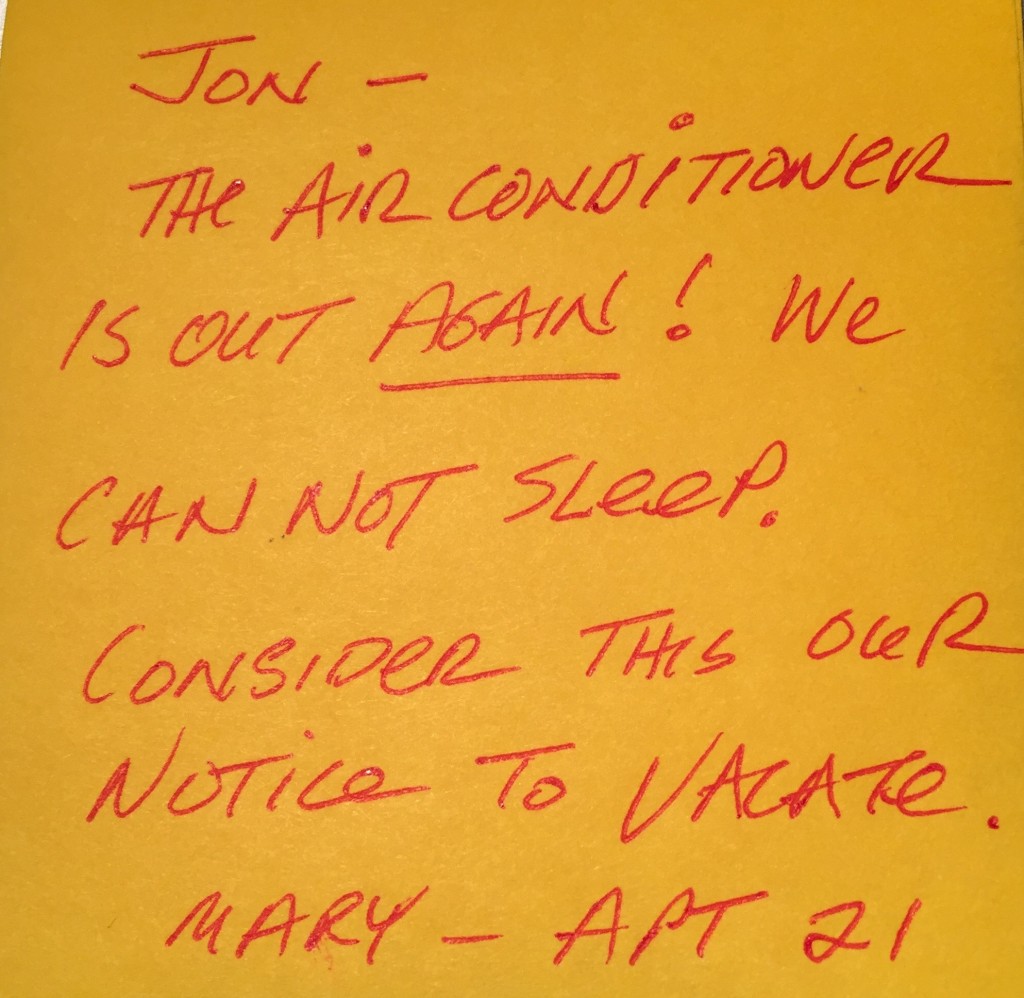
Reader Question: We own 75 units in 20 buildings. My husband has a good day job, and I manage the apartments; it is not easy work. We have had tenant complains, but we have shrugged it off as sour grapes or “It goes with the turf.” Yesterday we got a complaint letter that several tenants signed, which is upsetting. What makes a good landlord? Sue and Jon S.
Monty’s Answer: Owning and managing apartments are hard work. Management practices must be tailored to the environment, the clientele and working conditions. That said, there are principles to utilize anywhere that can reduce or eliminate complaints. The result is less turnover, less management intervention and happier employees and occupants.
- Treat tenants respectfully. We all know high maintenance people. Whether late with the rent, a sharp tongue or unreasonable requests, being respectful can be difficult. There are resources to learn about techniques to employ dealing with difficult people. Books that teach readers how to get along, a local organization with classes in dealing with difficult people and even YouTube.com has videos on the subject.
- Be true to your word. If you say you will fix the furnace on Tuesday, fix it on Tuesday. You can negotiate to identify a person, or company to fix problems on demand and is organized and talented enough to stay on schedule. Create a mindset within the organization where every person involved in the “being true to your word” process understands it and has been trained and supervised to carry it out.
- Keep your property in top shape. Preventive maintenance, timely repairs by qualified people and utilizing products best designed for the job will pay dividends. If paint peels, paint it. When an air conditioner breaks down, fix it or replace it. Something is wrong If you have no repair fund. Establish a monthly replacement repair fund.
- Be picky about accepting tenants. It is tempting to “take a chance” on a prospective tenant. On the other hand, if they become a collection problem you have gone backward. Review your rent up procedures and credit report service.
- Get organized to minimize common issues. An example is a move-in/move-out report. Institute this simple piece of paper. A visit on the move-out day can often reduce problems before they happen. Be there to deal with issues helping them get their security deposit back; most will appreciate it. Include your house rules as a part of the lease and inform them before they sign a lease how the move out will occur.
- Train and manage employees and contractors closely. A specific employee is often the source of tenant complaints. When bringing a new employee or new vendor into a relationship with you and your company, an orientation booklet, and specific training to set the desired expectation is vital. Even better if that conversation takes place as part of the interview process.
- Pay your vendors on time. “Fast pay makes for good friends” is an important part of holding a good team together. What kind of a message does a contractor or employee receives with slow pay when you really need them?
- Stay close to the business. It is your responsibility to know how your buildings are being managed. Being on the premises regularly and talking to employees, contractor and tenants allows you to keep a pulse on the happenings. Are the neighbors getting along? Did the contractor finish painting the floor as agreed? Did the Jones move-in go as planned?
- Be fair, consistent and follow-through. When this principle is in place the tenants, employees, and contractors know they can expect this level of treatment in a relationship with you and your company; it is natural that they will reciprocate in kind. While the tenant does not have the same motivation as the others, it is your job as the leader to mentor and teach your employees to live the principle.
- Think like a steward. A steward is someone who manages another’s property. See yourself as a temporary custodian who will diligently care for the property until you pass it to the next “steward,” only a better property than when you found it.
Think of other examples that could apply to specific tips. It is not easy, but if a property owner practiced each and every one of these principles, it would be extremely difficult for a tenant or tenants to find a reason to complain.
